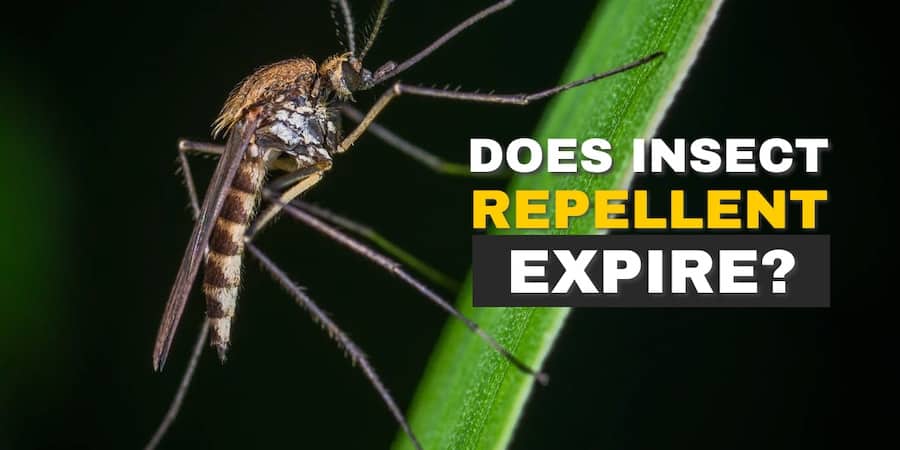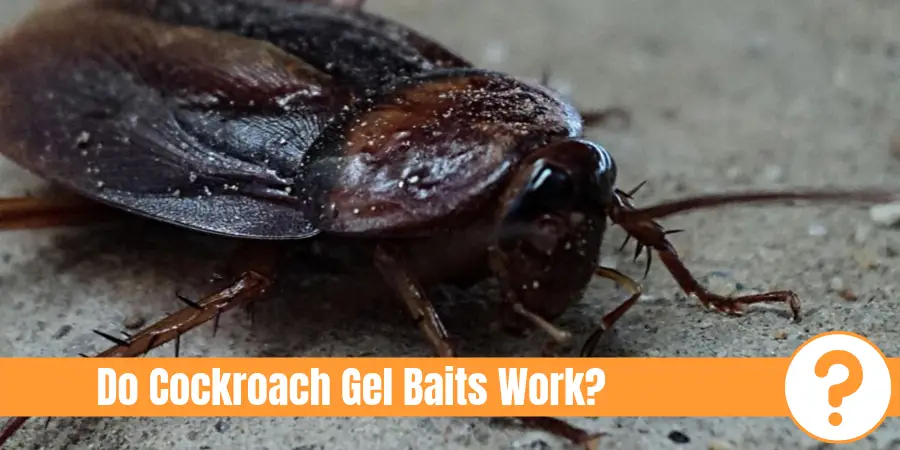This summer we had lots of insects in our garden, so I decided to use insect repellent to get rid of them. I went to the garage to see if we had something from the previous season. I found a bottle, but I didn’t know how long it had been there, and the expiration date was unreadable. Needless to say, I was a bit hesitant, so I did some research to find out if it was safe to use.
My main question was: does insect repellent expire? What I learned was that DEET-based or picaridin-based repellents don’t have an expiration date. If the repellent contains IR3535 (which is commonly added to skincare products), then there is an expiration date that is usually between 18 and 36 months after it is packaged. If you have no idea what kind of repellent you are using, try to use your common sense.
In this article, I’m going to take a closer look at different types of insect repellents and their expiration dates.
Table of Contents
Top Rated Insect Repellents
What is DEET-based insect repellent?
Although DEET sounds like something from outer space or the name of a Moby album, it is the active ingredient (N,N-diethyl-meta-toluamide) in most repellent products sold in the U.S.
Although it was developed in 1946 by U.S. Army military personnel who used it in insect-rich areas, it has only been on the public market since 1957. Nowadays, roughly 33% of the U.S. population uses DEET-based insect repellents for their skin protection.
Is it safe to use DEET-based repellents?
The EPA (Environmental Protection Agency) reviewed the safety of DEET in 1998 and 2014. According to the reviews, they believe DEET is safe and does not present a health concern. Of course, we are talking about the normal use of DEET.
Since DEET can sometimes cause skin irritation, the important thing to remember is that DEET should be sprayed over clothes as opposed to directly on the skin.
Is it safe to use DEET-based repellents on children?
EPA writes on their homepage that there is no age restriction regarding DEET usage. They have confirmed that products containing DEET can be used on children, but since we are dealing with a pesticide product here, you should always read and follow the instructions on the label.
Does DEET kill mosquitoes?
No, it doesn’t. Mosquitoes detect chemicals using receptors and neurons on their antennae and mouth. DEET interferes with those neurons and receptors; therefore, it protects your skin from the direct application.
What is the expiration date of DEET-based repellents?
DEET-based repellents do not have expiration dates, which means they’re believed to last indefinitely. What you have to consider is that the effectiveness can reduce over time; otherwise, you shouldn’t have any problems with it.
What is picaridin-based insect repellent?
Picaridin is a synthetic ingredient in lots of skin-applied insect repellents, and it has been on the market since the 1980s. Like DEET, it blocks insects’ smell sensors, making it hard for them to find exposed skin on your body. In the United States, picaridin has been available since 2005.
Since picaridin is odorless (or has a minimal odor) and doesn’t damage fabrics, it is suitable to use on clothes or other synthetics. It lasts up to eight hours and is as effective as DEET but not as oily.
Is it safe to use picaridin-based repellents?
Yes, picaridin is safe. It is rated as a “non-toxic” ingredient, which means that you can use it on your skin. Although it is uncommon, there are reports that some users experience skin irritation.
What if you ingest something that contains picaridin?
According to this study (held between January 2000 and May 2015), “Unintentional ingestion of picaridin-containing and other insect repellents was associated only with minor toxicity and was generally managed outside of a healthcare facility.”
Is it safe to use picaridin-based repellents on children?
Yes, you can use picaridin-based repellents on children. Currently, no studies have shown that it is unsafe to use picaridin for children. Keep in mind that according to the National Pesticide Information Center, infants and children may be more sensitive to pesticides. Also, it is unwise to use it on children younger than three years of age.
Does picaridin kill mosquitoes?
No, picaridin does not kill mosquitoes (or other insects). It blocks out the scent, making it harder for the insect to find exposed parts of our body.
What is the expiration date of picaridin-based repellents?
Like DEET-based repellents, picaridin-based repellents don’t have expiration dates; however, there is some reduction in the potency over time.
What is IR3535-based insect repellent?
IR3535 was developed in the 1970s and was mainly used in Europe. In the United States, it has been used since 1999. Primary targets of IR3535 are mosquitoes, deer ticks, body lice, and biting flies.
Some reports claim that IR3535 performs against ticks and mosquitoes just as well as DEET-based repellents but doesn’t protect as long as DEET- or picaridin-based repellents.
Is IR3535 safe?
The developer of IR3535 (Merck Inc.) confirms that it does not harm your health or the environment, but can we trust them? Well, according to EPA toxicity tests, IR3535 is indeed not harmful even when ingested or inhaled. It can, however, be irritating to the eyes. Also, since it may dissolve or damage plastics, it is not as suitable to use on clothes.
Is IR3535 safe for children?
Yes, it is. Health authorities from all over the world have not been introduced to any problems caused by IR3535-based repellents. But as mentioned above, IR3535 can cause eye irritation.
Does IR3535 kill mosquitoes?
No, it doesn’t. Like DEET- or picaridin-based repellents, IR3535 confuses the insect’s sense of smell, and since mosquitoes are seeking exposed skin, it makes it difficult for them to find you.
What is the expiration date of IR3535-based repellents?
Unlike DEET- or picaridin-based repellents, IR3535 products have an expiration date. Usually, it is between 18 months and 36 months, but read the product label to be sure.
Manufacturers recommend disposing of the product after two years. Besides, most of them won’t guarantee effectiveness for any longer than two years.
What if there is no expiration date label visible on the product?
Then you should use your common sense. If the product looks okay and you purchased it within the last two years, then it should still be able to repel insects.
You can also take a look at the manufacturer’s website and see what the expiration date for the current product is. (In this case, you have to know when you bought it.)
Remember that some countries have different regulations for repellents. It mostly depends on whether it is a “biocide,” a “healthcare” product, or a “pharmaceutical” product. Sometimes an expiration date is required and provided even though it is a product that doesn’t expire.
How to store insect repellents
Insect repellents should be stored away from heat or flame, and they should be kept in areas that are inaccessible to children.
How to dispose of insect repellents
The disposal of insect repellent depends on the type of container in which the repellent is sold.
If it’s a non-refillable container, empty it out before disposing of it (follow the instructions on the product label). For example, if it’s a non-aerosol spray, pour it into a jug of kitty litter, which can later be emptied in your regular trash. If the repellent cannot be emptied, contact your local waste agency. After that, recycle the empty bottle (if available).
To sum up: Does insect repellent expire?
Depending on the ingredients of your insect repellents, there are differences regarding the expiration date. If it’s DEET- or picaridin-based repellent, then there’s no expiration date but perhaps a decrease in potency.
If it’s IR3535-based repellent, then the normal expiration date is between 18 and 36 months, but to be sure, take a look at the product label.
Related questions
How do I correctly apply insect repellent? If you use a spray, shake it first and then, with a slow sweeping motion, spray it by holding it 6-8 inches (15-20 cm) away from your skin and clothing. Some repellents (IR3535, for example) can cause eye irritation, so spray it onto your hands first before applying to face.
If you are using non-aerosol repellents, use just enough to cover your skin (don’t overuse it).
Do ultrasonic pest repellents work? No, they don’t. There is no evidence showing the effectiveness of ultrasonic repellents. We have an article about studies conducted by scientists that showed commercially available ultrasonic devices had little or no effect on pests (full article here).
Can pest control get rid of snakes? The answer is no; pest control can’t get rid of snakes. Pest control can only manage small insects. Since snakes are reptiles the only way to take them away from your home and surrounding is to catch them. (full article here).








